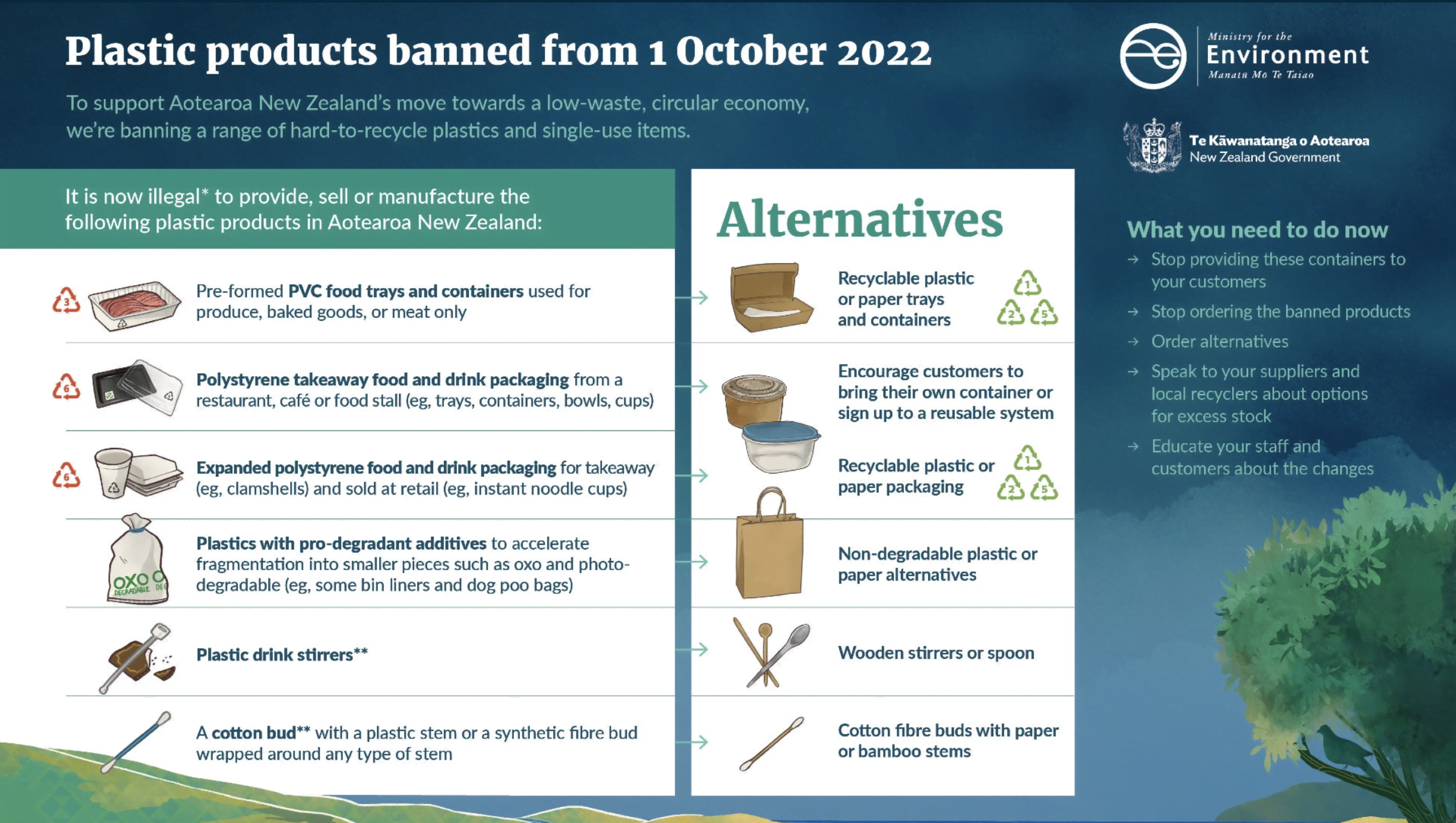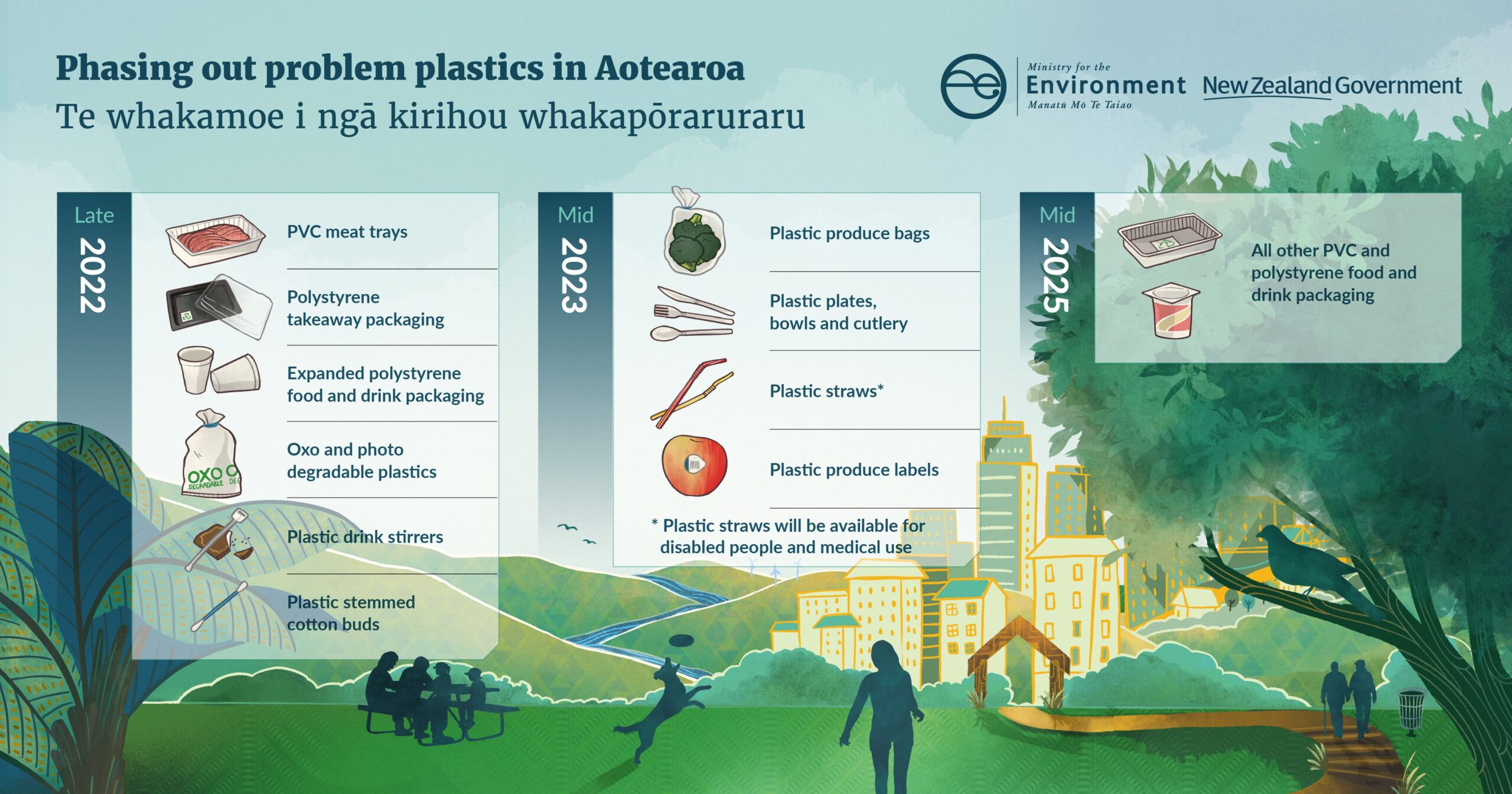Phasing out hard to recycle and single use plastics.
The Government is phasing out certain hard-to-recycle plastics and six single-use items in three tranches.
Phase 1 began on the 1st of October 2022.
The banned items consisted of:
- PVC food trays and containers
- Polystyrene takeaway food and drink packaging
- Expanded polystyrene food and drink packaging
- Plastic with pro-degradant additives eg, oxo and photo-degradable plastics
- Plastic drink stirrers
- Plastic stemmed cotton buds
Phase 3 begins mid year 2025.
From mid 2025 all other PVC and polystyrene food and drink packaging is to be phased out.
These decisions are still subject to refinement as Ministry Of The Environment develop the proposed regulations, and subject to final Cabinet decisions on the wording of those regulations.
More information on these proposed regulations will be available from late 2023.
Government Regulations in New Zealand
Due to Government regulation in New Zealand, plastic straws are to be banned from 1st July 2023 alongside many other single-use plastics. The Government recognises that plastic is one of our greatest environmental challenges, as it regularly ends up as waste in our landfills, our moana and whenua.
This ban follows the lead of countries such as the UK in 2020, and India who followed the UK with a ban on straws, cutlery and food packaging in July 2022.
Phasing out single-use plastics will help reduce plastic waste, improve our recycling systems, and protect our environment. Together, we will move New Zealand towards a low-emissions and low-waste economy.
Following public consultation in 2020, The Government received almost 8,000 submissions on its phase-out proposals. This included a high level of response from the general public, affected businesses, environmental and community groups, and local government agencies.
Practical alternatives such as paper, metal and glass straws are readily available for some of the items and plastic types being phased out. Many businesses and individuals have already made changes. There is one viable material that has yet to emerge in New Zealand as a commonly used straw material, and that is bamboo.
It is time to make decisions with future generations in mind and switch to Bambu.
Why these plastics are being banned.
Plastic is one of our greatest environmental challenges. Many single-use plastic products are used only once, not properly disposed of and end up littering our moana and whenua.
Moving away from hard-to-recycle and single-use plastics will help:
- Reduce our plastic waste
- Improve our recycling systems
- Protect our environment
What happens if you don't comply.
- All businesses are legally obligated to comply with the regulations. The Ministry for the Environment will first work with businesses to ensure they understand their obligations, however penalties apply for non-compliance.
- Ministry for the Environment will generally take an educational approach and offer advice to help businesses understand their responsibilities. The way they work is guided by the Compliance, monitoring and enforcement strategy.
- Ministry for the Environment will take enforcement action where appropriate, particularly where systemic or ongoing non-compliance occurs. Parties that contravene the Waste Minimisation Act 2008 may face prosecution and, if convicted, fines of up to $100,000 per offence. All prosecution decisions are made subject to the Prosecutions policy and Enforcement decision making policy.
- Need more info – click here
Got a question? No problem.
At Bambu, we are always happy to help. Whether you have a wholesale enquiry or if you’d simply like to find out more about our products or how you can work with us, please feel free to contact us. Our team will get back to you within 24 hours.



